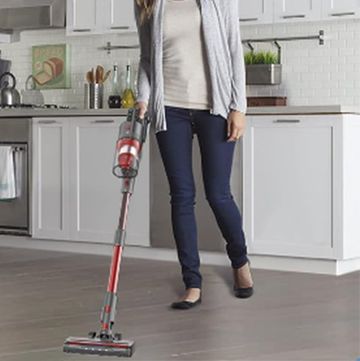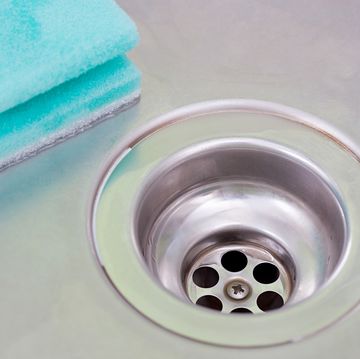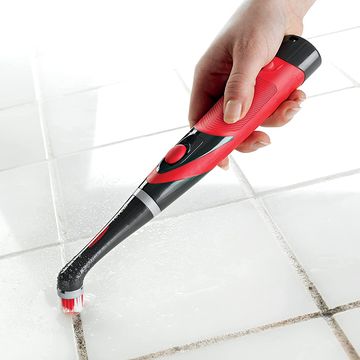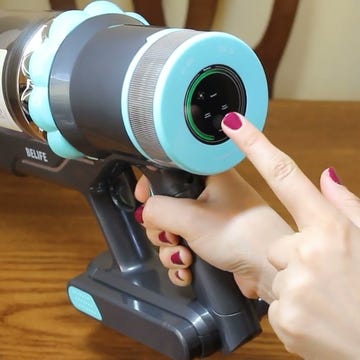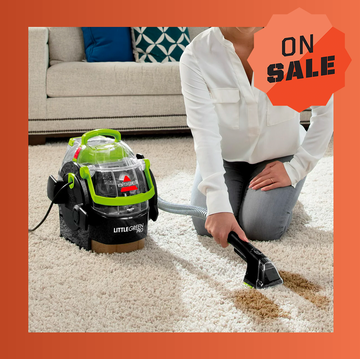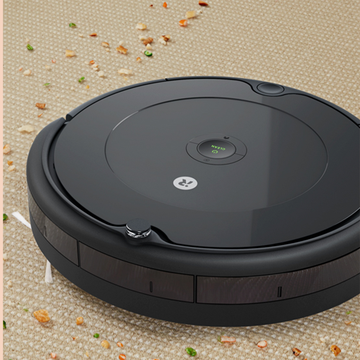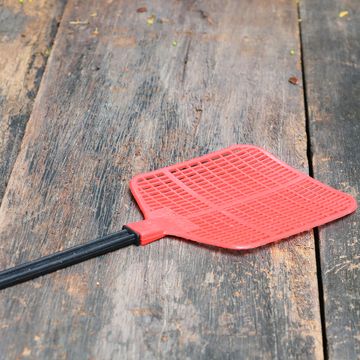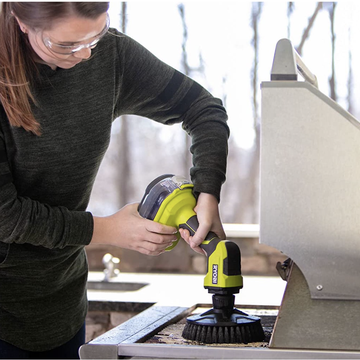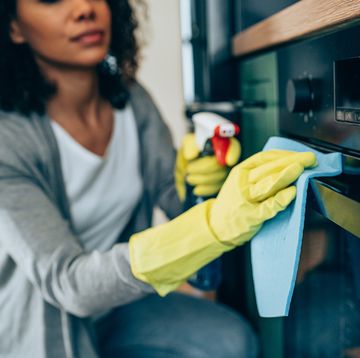If you've seen the recent viral TikTok trend that uses gasoline fumes to kill wasp nests, beware. You should never try this hack. It's a fire hazard, a potential environmental hazard, and is extremely unsafe, says Pete Duncanson, senior director of training and development at ServiceMaster Restore. Here's what you need to know to keep your family safe.
A typical video goes like this: A TikToker places a cup of gasoline over a wasp nest from below, pressing the cup against a home's overhang. Seconds later, wasps immediately drop dead into the cup. It may appear simple, but the hack can go wrong in deadly ways.
"The vapor gas that’s given off from liquid gasoline would asphyxiate bees or wasps, so it would work from that standpoint. However, what they’re doing is very dangerous—to hold a cup of gasoline in your hand." Duncanson says. "What if one of those wasps got loose or wasn’t on the nest but flew in and you got stung and gas goes everywhere. Now you have a gas spill. Now you’re in a very flammable situation."
Another underlying danger: heat. "Gas can spontaneously combust from heat. So if a wasp nest was under a metal railing or part of an overhang that was hot from the sun, you could actually ignite the gasoline just from the intense heat." (As if staying cool in the summer heat weren't hard enough without literally adding fuel to the problem.)
Then there's the question of safely handling the gasoline — and gas-soaked wasps in it — afterward. "If you put gasoline into a plastic cup, it could actually dissolve the cup. If you put it into a Styrofoam cup, it will dissolve the cup," he says. "What do you do with the gasoline when you’re done, because pouring that back into a gas can or other safe container is very problematic and very easily spilled. If you’re dumping it on the ground, that’s an environmental hazard."
Finally, talk to your kids and make sure they understand the dangers. Duncanson says he first learned about the trend when one of his grandchildren saw it and pointed it out to him. "We had long conversation about safety hazards and how that could cause a fire," he said. "She was the one saying, 'Why would they do that? That would catch on fire. They could spill the gas on themselves.'"
Looking for safe ways to get rid of wasps? Duncanson has advice for that too.
"First and foremost, safety," he says. "You may not be allergic to one wasp sting but if you get multiple wasp stings, you may have an allergic reaction. So anytime you’re dealing with wasps or bees, take safety into consideration and whether you should be handling it. When in doubt, call the professionals, and let them take care of things for you."
Next, there are some simple, effective swaps that work just as well as commercially produced wasp sprays, he says. Ammonia works, as does any standard window cleaner that contains ammonia, such as Windex. Another alternative you probably already have on hand: dish soap mixed with hot water in a spray bottle. "The soap adheres to the wings of the wasps and knocks them down," he explains.
The key to these methods is using a standard spray bottle to give you some distance from the nest. "A lot of commercially produced wasp sprays are designed to spray a very long distance," he says. And on that note, don't spray from a ladder because "you could get stung and then react and fall."
So bottom line: Some TikTok trends are fine (we invite you to try a delicious fizzy jam drink or to check out the best TikTok-famous products). But when it comes to an influencer encouraging you to try hacks with dangerous chemicals, steer clear.
Pete Duncanson, senior director of training and development, has 38 years of experience at ServiceMaster Restore, a company that provides home and commercial restoration services for damage from fire and smoke, water, mold, weather, and more. He also served 12 years on the board of directors, including four years as chairman, of the IICRC (Institute of Inspection Cleaning and Restoration Certification), the standard-setting body within the industry.

Terri Robertson is the Senior Editor, Digital, at Country Living, where she shares her lifelong love of homes, gardens, down-home cooking, and antiques.







